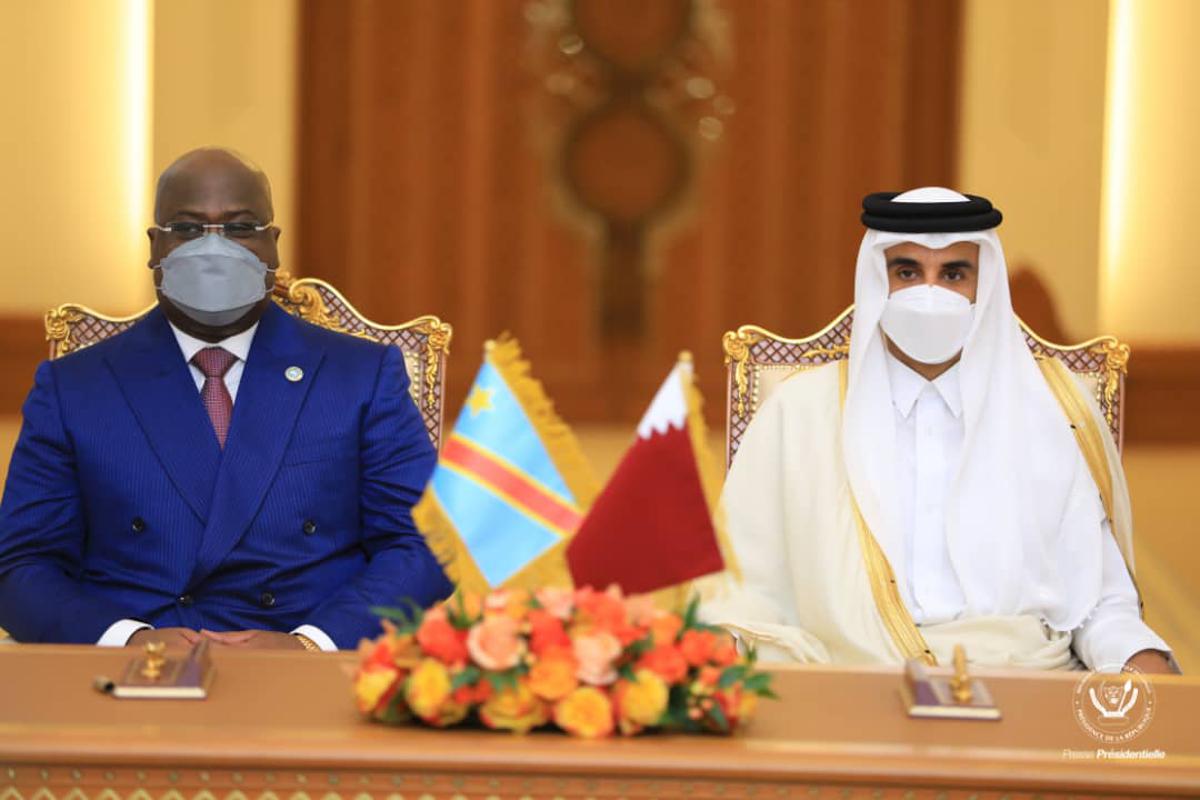Tshisekedi hailed foreakthrough peace deal in eastern DR congo

In a significant diplomatic achievement, President Félix Antoine Tshisekedi is being praised for spearheading what many Congolese newspapers describe as a historic step towards lasting peace in the war-torn eastern region of the Democratic Republic of Congo (DRC).
The applause follows the recent signing of a Declaration of Principles in Doha, Qatar, between the Congolese government and the rebel coalition AFC/M23.
On Monday, July 21, the Kinshasa-based newspaper Le Phare ran a bold headline: “Tshisekedi Wins the Bet on Durable Peace in Eastern DRC,” emphasizing the symbolic and political weight of the agreement. The outlet noted that “those who predicted failure are now changing their tune” after the successful conclusion of talks in Doha. This development, they argue, follows the peace accord signed between the DRC and Rwanda on June 27 in Washington, suggesting a growing regional consensus for peace.
“If millions of Congolese had not witnessed this historic moment,” Le Phare stated, “the name of the key actor who fought relentlessly from Nairobi to Washington, via Luanda, Addis Ababa, Bujumbura, Brazzaville, Maputo, and Pretoria might have been erased from the record.”
Addressing critics who frame the Doha Declaration as a capitulation, Infos 27 insisted it should be seen as a “strategic turning point.” Citing government spokesperson Patrick Muyaya, the outlet reported: “The DRC is not retreating—it is imposing its conditions, based on the Constitution, international law, and UN resolutions.
” He underscored that the withdrawal of M23 forces, the restoration of state authority, and the protection of civilians remain non-negotiable.
EcoNews highlighted that peace efforts are progressing along two tracks: the Washington accord between Kinshasa and Kigali and the Doha agreement with the rebels. Both, it noted, were made possible through joint U.S.-Qatari mediation.
Despite these promising steps, the publication cautioned that eastern DRC remains volatile and the path to sustainable peace is still fraught with challenges.
In Le Quotidien, Muyaya reaffirmed the government’s firm stance: “The Declaration of Principles is our compass. There are non-negotiable elements, particularly national sovereignty.
It clearly outlines the requirement for verifiable withdrawal. We must regain full control of all territories held by the M23. They know that the Constitution and constitutional order must be respected.”
La Prospérité added that the fog of uncertainty is gradually lifting, revealing a more hopeful horizon.
The paper reported that the Doha talks enabled the parties to agree on key issues that could lay the groundwork for genuine peace and security in the region.
Meanwhile, La Référence Plus noted the wave of public and political reactions to the agreement. From seasoned analysts to everyday citizens, voices across the country are weighing in.
But amid the differing opinions, one sentiment resonates clearly: the people of eastern Congo, long tormented by rebel violence allegedly backed by Rwanda, are yearning for enduring peace.
About The Author
dailymailafric
I am an avid African news observer, and an active member of Daily Mail Africa.
I’m Passionate about staying informed on diverse topics across the continent,
I actively contribute to publishing on political, economic and cultural developments in Africa.



